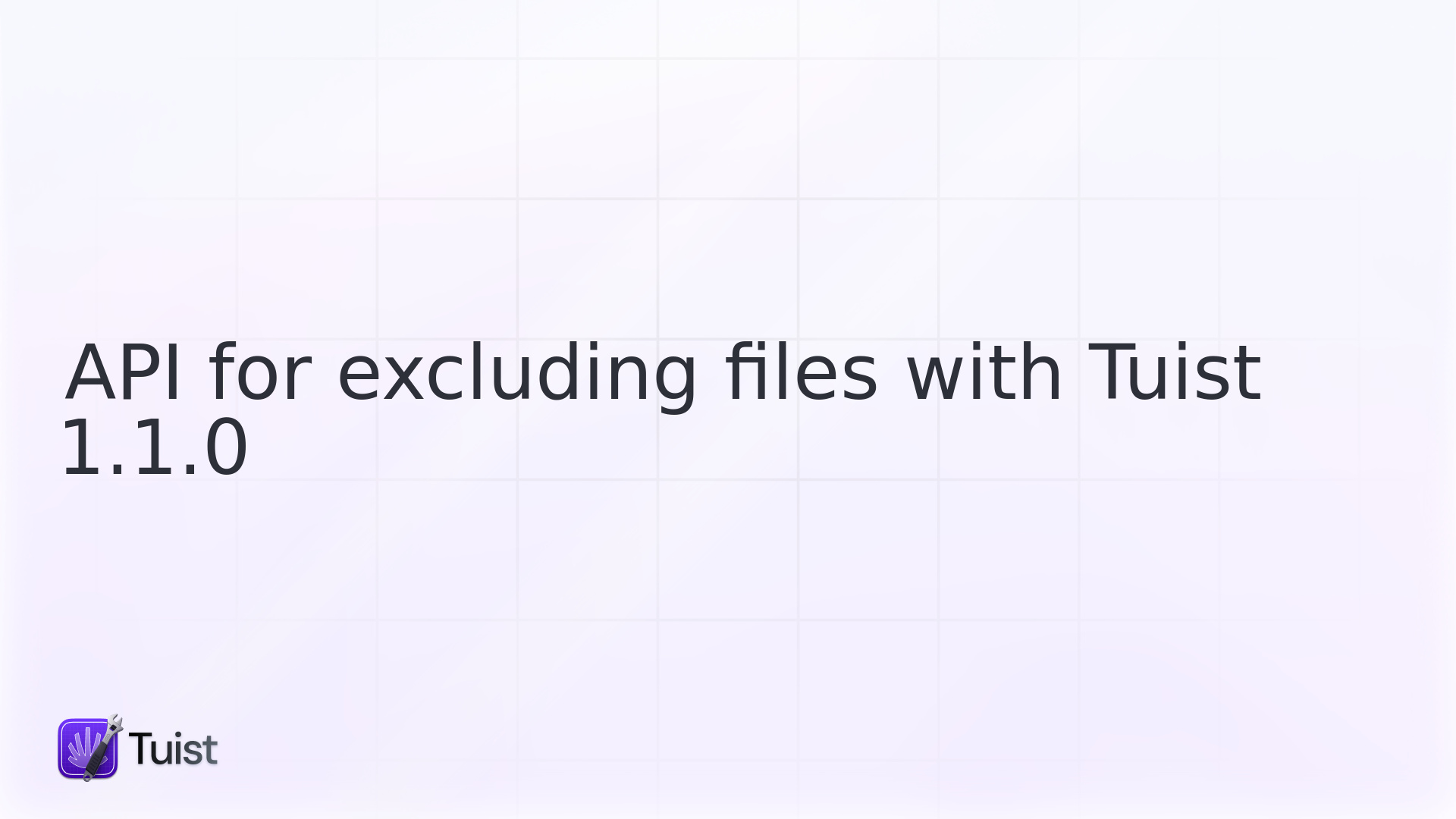

Tuist 1.1.0 has been released and is shorter than usual because we have committed to a fixed biweekly. In the past, users were in situations where their projects were pointing to commits in main. Although that's possible thanks to Tuist's version management, that's an undesirable state to be in. We chose two weeks as the cadence because a week is to short as to be able to ship noticeable changes, and more than two weeks likely leaves users waiting for improvements and bug fixes coming along with new versions.
Besides committing to a fixed release schedule, this version also ships with support for excluding files thanks to Vytis's first code-contribution to the project. Some users reported that the current API was a bit limiting and that they could not express their project files concisely. Although we firmly believe that we should aim to keep the files structure simple, we also understand that users might come from complex setups that they might want to express in their manifests.
You can adopt the new API easily. In those places where you define glob patterns to match files,
you can use the constructor of the underlying type and pass the excluding argument:
In case one was not enough,
Vytis made another great contribution to the project.
He improved the generation of schemes so that the autogenerated schemes from targets that have dependant testables, have test actions too.
In other words, the scheme MyFramework that is generated for the framework MyFramework,
which has an associated MyFrameworkTests,
has a test action defined to run tests.
Internal improvements
To ensure a healthy and sustainable growth of the project,
in this version,
we are also shipping some internal improvements.
We created two new frameworks.
The first one will contain all the logic for caching output artifacts to speed up builds, something that we have already started working on.
The latter will contain the logic for commands such as tuist build, or tuist test that will define an standard CLI to interact with the projects.
How to update
As always, updating Tuist is as simple as running the following command:
Happy holidays
We hope you are having a wonderful time with family and friends and using this time to recharge the batteries and plan 2020.

